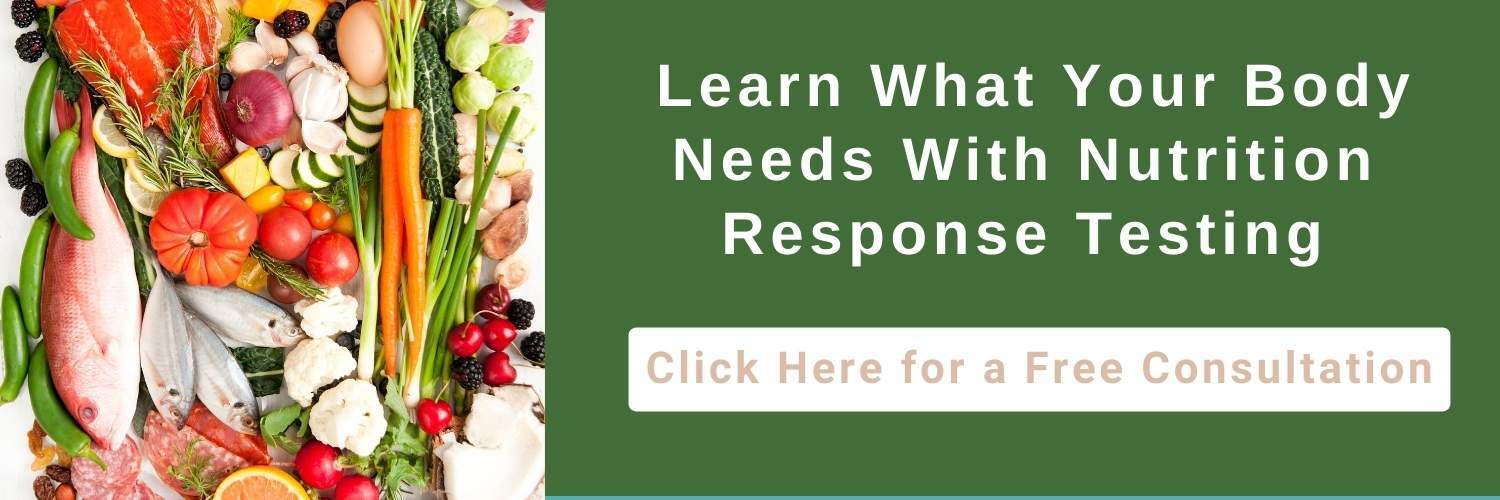Whole Food Supplements: How to Know You’re Getting the Real Deal
"The content below is not intended to be a substitute for professional medical advice, diagnosis, or treatment. Always seek the advice of your physician or other qualified health provider with any questions you may have regarding a medical condition."
You’ve been searching for the best whole food supplement for your needs.
The more you look at the bottles in the store, the more confused you’re getting. Are all supplements labeled “whole food” really made with whole foods? What should you look for in a supplement?
Your health matters and there are so many different things to know about ingredients, labels, etc.
This guide can help. Keep reading to learn what a good whole food supplement is, the differences between synthetic and whole food supplements, and what you should look for in a quality whole food supplement.
Table of Contents
What Is a Good Whole Food Supplement?
Whole food nutritional supplements are vitamins or other forms of nutrients that closely match the nutrition of foods in their whole form. A good whole food supplement is one that will provide you with the nutrition you need.
What’s right for you in a whole food supplement might not be what’s best for someone else. Generally, the best whole food supplements include:
- Multivitamins
- Fish oil
- Probiotics; and
- Omega-3’s
Whole Food Nutritional Supplements vs. Synthetic Supplements
What Are Synthetic Supplements?
Synthetic supplements are manufactured products, whether …
- Capsules
- Powders
- Tablets, or
- Liquids
… that are made from chemicals to supplement part of your diet. They were created to mimic how the natural nutrients act in your body.
Although synthetic supplements are generally created to be helpful and beneficial to your body, oftentimes they are hard to absorb and have the potential to create health issues.
Because understanding synthetic supplements can sometimes feel more complicated than it is, here’s a quick breakdown.
Synthetic supplements generally:
- Are cheaper to make than whole food supplements
- Use non-organic ingredients
- Contain isolated or simulated nutrients; and
- Allow for higher doses
Should You Avoid Synthetic Supplements Altogether?
Synthetic supplements often get a bad rap, but there are circumstances where it is necessary to supplement naturally occurring active ingredients in supplements with a synthetic form.
If you are receiving all the vitamins and nutrients necessary for your unique needs, synthetic supplements are not necessary.
However, if your diet is lacking specific nutrients, synthetic supplements can be a great way to obtain high amounts of that nutrient.
A great example of when a synthetic supplement might be necessary is for women who are …
- Considering getting pregnant
- Trying to conceive; or
- Have become pregnant
… and need to consume anywhere from 400-800 micrograms of folic acid every day.
Consuming this amount of folic acid cannot be met through eating whole foods alone, so adding the synthetic form, “folate,” is usually necessary.
What Are Whole Food Supplements?
Whole food vitamins and supplements are a condensed and concentrated source of fruits and vegetables that provide your body with the vitamins and minerals it needs.
Whole food nutritional supplements are those that include:
- Food-based plant ingredients
- Desiccates
- Plant extracts; or
- Animal extracts
Why You May Need to Add Whole Food Supplements to Your Diet
Eating whole, nutrient-dense foods is one of the most beneficial ways to boost your health and wellness, but we know that sometimes our bodies need a little more of something.
Examples of why you may need to add whole food supplements to your diet include:
- If you have a medical condition that prevents your body from absorbing enough of a specific nutrient — i.e. pernicious anemia, a disorder where the body doesn’t absorb vitamin B12 well
- If you’ve been diagnosed nutritional deficiencies
- Some vegan diets do not provide enough nutrients, so choosing a whole food supplement may be necessary
- Anyone who has undergone bariatric surgery
Deciding on whether you need a whole food, synthetic, or combination of both to better assist you on your health and wellness journey, can be confusing. With so many things to consider, let Dr. Sergi at HealthierU help you meet your nutritional needs.
Through Nutrition Response Testing, we can help you determine your nutritional needs and create a holistic plan to meet those needs.
7 Things to Look for in The Best Whole Food Supplements
#1: Start by Reading the Labels
Before purchasing any supplement, it’s essential that you read the ingredient labels. When you’re searching for a whole food supplement, unfortunately, you can’t go by something that is simply marketed as a “whole food supplement.”
Instead, you’ll need to know what to look for — some “whole food supplements” have trace amounts of synthetic or isolated vitamins in them.
If the supplement has any of the following ingredients …
- Ascorbic acid (vitamin C)
- Calcium pantothenate (vitamin B5)
- Choline bitartrate (choline)
- Menaquinone-7 (vitamin K2)
- Riboflavin 5 phosphate (vitamin B2)
- P5P (vitamin B6)
- 5-MTHF (folate)
- Thiamine HCL (vitamin B1)
… it’s important that you understand that these are either:
- Originally synthetic; or
- Synthetically made
#2: Proper Balance of Vitamins and Minerals
In their natural form, whole foods already contain a balance of vitamins and minerals that act in synergy with one another.
When you start supplementing essential vitamins and minerals in your diet, it can go a few different ways:
- You wind up finding the (near) perfect balance.
- You get “too much of a good thing” by taking more than the recommended daily amount of nutrients, vitamins, or minerals.
- Your body ends up lacking some of the essential vitamins it needs because you aren’t consuming enough vitamins or minerals.
For this reason, it is important that, when looking for the best whole food supplement, you look for one that provides the proper balance between vitamins and minerals.
#3: Ingredients That Are Organically Sourced
Choosing whole food supplements that are organically sourced comes with a list of benefits, including:
- Reduced exposure to potentially harmful toxins from pesticide usage
- Cleaner nutrients
- Higher antioxidant supply
- Less likelihood of any “hidden” synthetic ingredients added, as organically sourced foods are heavily regulated by the National Organic Program (NOP)
#4: Avoid Filler Ingredients
Even supplements labeled as “whole-food” supplements can have hidden filler ingredients — which is why it’s also important to read those labels, as we mentioned above!
What’s considered a filler in a whole-food supplement?
Anything unnecessary to supplement your nutrition.
Some of the most common filler ingredients to look out for — and steer clear of — include:
- Hydrogenated oils
- Maltodextrin
- Talc
- Heavy metals
- Artificial sweeteners
- Artificial colors; and
- Polychlorinated biphenyls (PCBs)
#5: Know Where the Ingredients Are Sourced From
Supplement labels should have information about where the ingredients are sourced.
If the product does not contain a list of food sources that you recognize as natural food sources, it’s safe to assume the product has synthetic ingredients.
Some sources to look for specifically include:
- Vegetables
- Fish
- Yeast
- Citrus fruits
- Etc.
#6: Free of Common Allergens
Are hypoallergenic supplements a thing?
Yes!
Hypoallergenic supplements should be formulated without common allergens, such as:
- Gluten
- Dairy
- Corn
- Yeast
- Soy
- Caffeine, and
- Peanuts
But buyer beware, dietary supplement labels are not strictly governed when using the term “hypoallergenic” — meaning that supplement companies can label their products without having to meet specific criteria.
If you have an allergy or are concerned about specific ingredients, be sure to read any and all labels carefully — even if the company markets the supplement as being hypoallergenic.
#7: Gentle on the Stomach
When choosing a whole food supplement, consider choosing a dissolvable, chewable, or powder supplement. These tend to be easier to digest than tablets because they lack the binding agent used to hold them together.
Even the Best Whole Food Supplements Don’t Replace Good Nutrition
Although whole food supplements can be beneficial to some, it’s vital that you remember that even the best supplements on the market can’t replace a healthy, well-balanced, whole food diet — they are simply there to “fill in the gaps.”
Instead of relying on a nutritional supplement, especially if your body is lacking the nutrients it needs to thrive, determining and addressing any underlying issues is key to continuing to live your healthiest lifestyle.
How Nutrition Response Testing Can Lead to Finding the Best Whole Food Supplementation for You
At HealthierU, we strive to help each of our patients meet their health and wellness goals.
If you are struggling to meet your nutritional needs and are considering taking a good whole food supplement — or are taking one and still struggling — Nutrition Response Testing can help you uncover any underlying causes.
Once we’ve established any underlying causes of your deficiencies, we can develop a one-of-a-kind, unique-to-you, program to help you overcome the deficiencies through:
- Diet
- Whole food supplementation; and
- Lifestyle changes
For more information on how Dr. Sergi can help you improve your health and wellness, contact HealthierU today.






